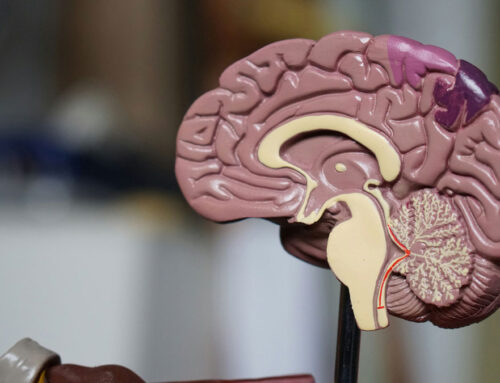Today is World Alzheimer’s Day, a day when Alzheimer’s organizations across the globe concentrate their efforts on raising awareness about Alzheimer’s and dementia.
According to The Alzheimer Society of Canada, there are currently 564,000 people living with the disease. And this number is expected to increase to 937,000 in the next 15 years. Here are a few other numbers to keep in mind:
- If you’re a smoker, your risk of being diagnosed with dementia increases by 45 per cent
- Of those diagnosed with dementia, 65 per cent are women aged 65 or older
- There are currently 16,000 Canadians under the age of 65 living with dementia
- In Canada, 25,000 new cases of dementia are diagnosed every year
- There are 1.1 million Canadians affected directly or indirectly by the disease
- The annual cost to Canadians to care for those living with dementia is $10.4 billion
Alzheimer’s affects many people, whether it’s directly or through a loved one. Staying educated can help you and those around you, so read on to learn all about Alzheimer’s and how you can support your brain health.
What’s the difference between Alzheimer’s and dementia?
Although the terms dementia and Alzheimer’s are used interchangeably, they are different. Alzheimer’s disease is the most common form of dementia, a group of disorders that impairs mental functioning. This video prepared for the Alzheimer Society of Canada explains the difference.
Alzheimer’s disease is irreversible and destroys brain cells, causing thinking ability and memory to deteriorate. Alzheimer’s disease is not a normal part of aging.
The effects of Alzheimer’s disease
Alzheimer’s disease can affect everyone differently; there are several symptoms and changes that manifest as the disease progresses. It’s difficult to predict symptoms, the order in which they will appear, or the speed of their progression. Here are some common symptoms to be on the watch for.
- Cognitive and functional abilities: a person’s ability to understand, think, remember and communicate will be affected. This could impact a person’s ability to make decisions, perform simple tasks, or follow a conversation. Sometimes people lose their way, or experience confusion and memory loss, initially for recent events and eventually for long-term events.
- Emotions and moods: a person may appear apathetic and lose interest in favourite hobbies. Some people become less expressive and withdrawn.
- Behaviour: a person may have reactions that seem out of character. Some common reactions include repeating the same action or words, hiding possessions, physical outbursts and restlessness.
- Physical abilities: the disease can affect a person’s coordination and mobility, to the point of affecting their ability to perform day-to-day tasks such as eating, bathing and getting dressed.
Alzheimer’s disease is often called a family disease because the chronic stress of watching a loved one slowly decline affects everyone.
Treatment
There are several medications that can help with symptoms such as memory decline, changes in language, thinking abilities and motor skills.
While dietary factors are complex and foods contain a balance of hundreds of nutrients, studies suggest that these five may be especially important for brain health.
- Omega-3 fatty acids: Other studies have shown that the oils found in fish are good not just for the heart, but for the brain as well. Oily fish like salmon, tuna, mackerel and trout are particularly high in omega-3s.
- Vitamin B: There are many types of B vitamins, and all are important for nerve and brain health. B12 in particular has been shown to be protective against memory problems. After age 50, some people lose the ability to absorb B12 from foods, so supplements like CanPrev’s Synergy B may be recommended. B12 is found in meats and other animal foods like fish, eggs and cheese. Some cereals are fortified with B vitamins as well.
- Vitamin C: Most people know vitamin C from supplements and orange juice, but it’s also found in broccoli, red peppers, dark green vegetables, strawberries and kiwifruits.
- Vitamin D: Called the sunshine vitamin because people make it through the skin on exposure to sunlight, vitamin D levels also tend to be low in older people. Milk has added vitamin D, and it’s also found in fatty fish.
- Vitamin E: Vitamin E is a fat-soluble vitamin found in vegetables, nuts and seed oils, leafy greens and whole grains. CanPrev’s Antioxidant Network contains mixed tocopherols, a family of vitamin E compounds.








Leave A Comment